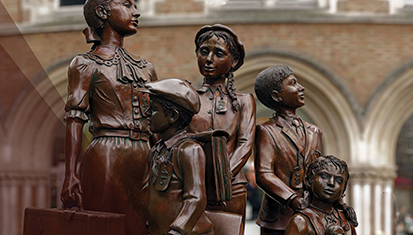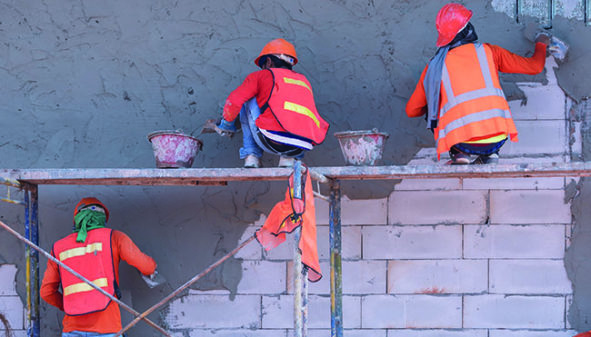Reflections on the evaluative studies of the Refugee Transitions Outcomes Fund and UK Asylum, Migration and Integration Fund
Reflections on the evaluative studies of the Refugee Transitions Outcomes Fund and UK Asylum, Migration and Integration Fund
On World Refugee Day 2022, we are reflecting on our current work in the migration, asylum, refugee, and integration sector on evaluative studies of the Refugee Transitions Outcomes Fund and UK Asylum, Migration and Integration Fund.
Refugee Transitions Outcomes Fund
Ecorys, in partnership with Social Finance and academic experts, was commissioned by the Home Office, Resettlement and Integration Unit as the Learning and Evaluation Manager for the Refugee Transitions Outcomes Fund (RTOF), a £14 million fund which seeks to increase the self-sufficiency and integration of newly granted refugees, helping them to move into work, learn English, access housing, and build links in their local communities. The funding for the RTOF programme comes from Her Majesty’s Treasury Shared Outcomes Fund and the Department for Digital, Culture, Media and Sport Life Chances Fund.
In summer 2021, four projects were selected through competitive tender to deliver the programme outcomes for a fixed cohort until March 2024. The successful projects are partnerships formed of social investors, regional bodies (e.g., migration partnerships), local authorities and providers, most commonly Voluntary, Community and Social Enterprise organisations, and often co-produced with refugees. All four projects are Social Impact Bonds, a Payment-by-Results contract where social investors pay for the service, and the Government repays the investors if the service is successful.
The Learning and Evaluation Manager study began with a scoping phase where the proposed methods were tested through workshops, in collaboration with RTOF stakeholders, alongside building a shared data system to capture monitoring and outcomes data. Coproduction is a core principle of the study, and we are currently recruiting members for a Refugee Steering Group. Members will receive training in research and evaluation skills and will be supported to use these to undertake consultation with a small number of peers. The insights will inform the study activities and will be presented to wider programme governance structures. The next stages of the study span until March 2024 and include process evaluation, impact evaluation and Value for Money assessment, reporting yearly. The learning strand enables cross project sharing of practice, as well as generating learning for the programme.
UK Asylum, Migration and Integration Fund
Another Ecorys project that highlights our work to mark World Refugee Day 2022 is the final evaluation of UK Asylum, Migration, and Integration Fund (AMIF) that we are undertaking on behalf of the Home Office. AMIF is the European Commission funding to support projects dedicated to asylum, migration and integration. It aims to further boost national capacities and improve procedures for migration management, in particular, echoing the theme of this year’s World Refugee Day on the right to seek safety, through emergency assistance and the relocation mechanism. The AMIF funding is programmed for a period of 7 years, so Ecorys’ evaluation concerns the 2014-2020 programme, with projects running until the end of 2022.
Building on an interim evaluation conducted internally by the Home Office Analysis and Insight team, Ecorys’ two year evaluation contact is delivering a mixed-methods (qualitative and quantitative) process and outcome evaluation, completion of which forms part of the requirement for accepting AMIF monies from the European Commission (EC). The evaluation includes analysis of the outputs and outcomes achieved by the funded projects, a cost-effectiveness analysis, a qualitative examination of the administrative systems and processes implemented by the Fund and four case studies of funded projects. To date the evaluation team have conducted a first wave of qualitative interviews with those leading projects across the Asylum, Returns and Integration strands of the UK AMIF Programme and have established mechanisms for the collection of beneficiary data with integration related projects.
For more information on RTOF, contact James.Ronicle@ecorys.com.
For more information on AMIF, contact Katharine.Mckenna@ecorys.com.

20 June 2022
3 minute read


